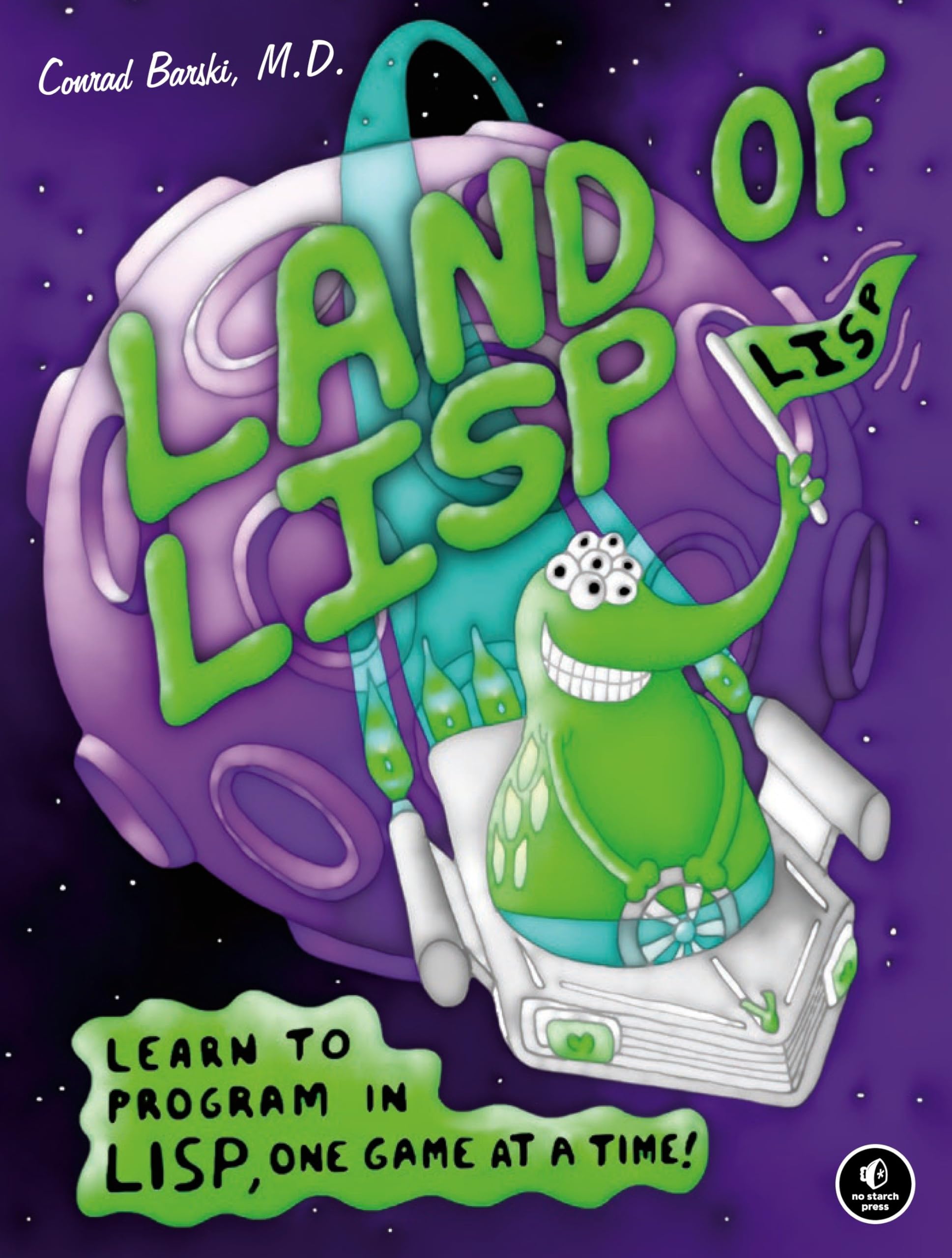Found in 3 comments on Hacker News
ska · 2019-10-07
· Original
thread
offered without judgement: https://www.amazon.com/Land-Lisp-Learn-Program-Game/dp/15932...
sedachv · 2010-10-11
· Original
thread
'"Learn You A Haskell" is very good, and I haven't seen anything like it for Common Lisp.'
It's actually inspired by Conrad Barski's 'Casting SPELs in Lisp' (http://www.lisperati.com/casting.html), which in turn was inspired by Why's Guide to Ruby (I think). Conrad Barski actually wrote a Haskell comic book tutorial that predates 'Learn you a Haskell' (http://lisperati.com/haskell/). Not only that, but Conrad's full-length Lisp tutorial comic book, Land of Lisp, is due to hit the shelves in four days: http://www.amazon.com/Land-Lisp-Learn-Program-Game/dp/159327...


https://leanpub.com/progalgs/read#leanpub-auto-data-structur...
Or a book like Barski’s Land of Lisp
https://www.amazon.com/Land-Lisp-Learn-Program-Game/dp/15932...
I would start with Common Lisp.